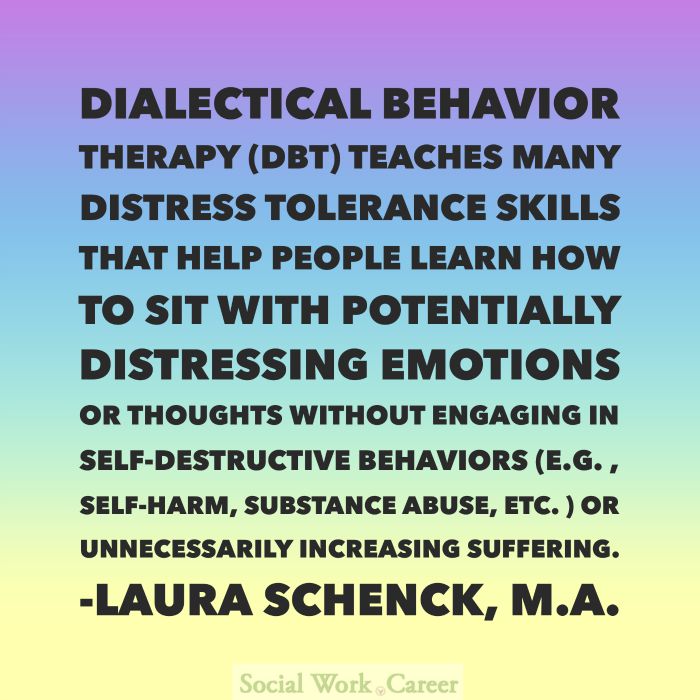

#Dialectic behavior therapy how to#
During this first stage, you will begin learning how to control your behaviors, including those behaviors that prevent you from getting the help you need and/or cause you to harm yourself physically or emotionally. Stage one: Stage one of DBT serves as the foundation on which you will build your success.The DBT process is broken down into four different stages: We meet weekly to consult and support each other in order to be effective in the work we do.Dialectical Behavior Therapy is a process of different stages, all of which are developed to help encourage a willingness to get better and obtain healthy coping skills. We respect the integrity and rights of the client.We are available for weekly therapy sessions, phone consultations, and provide needed therapy back-up.
#Dialectic behavior therapy professional#


Learning and mastering behavioral skills for mood-independent life choices.Decreasing quality of life interfering behaviors.

Decreasing therapy interfering behaviors by either therapist or client.Decreasing high-risk suicidal and self-harming behaviors.Because of the personal dedication, sacrifice, and effort required to successfully complete our DBT program, applicants are required to complete a DBT Orientation Intake before being eligible for admission into the DBT program. This requires a continual willingness on the part of DBT participants to put in the hard work necessary for making the changes they want in order to create lives worth living. One of the key assumptions of DBT is that while we may not have caused all of our problems, we are the only ones capable and responsible for fixing them. As a unique and powerful way to further reinforce the skills taught in the skills groups, telephone coaching with your DBT therapist is available between sessions. The purpose of the individual is to generalize the skills into everyday life. The purpose of the group is to learn the skills. rapid mood changes with mixed anxiety and depressionĭBT separates skills training from individual DBT therapy, requiring participants to attend weekly skills training groups in addition to being in ongoing and weekly DBT therapy.unstable relationships, especially those involving intimacy.extremely sensitive and lashing out in anger over the slightest miscue.a tendency to see others and the world in black and white terms.high emotional reactivity requiring a long time to calm down.an unstable sense of self, including chronic feelings of emptiness.a tendency towards impulsivity and self-destructive behaviors.DBT has gained popularity in treating client’s who have challenges with:


 0 kommentar(er)
0 kommentar(er)
